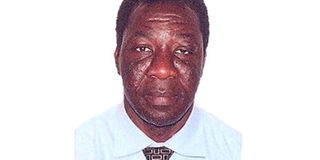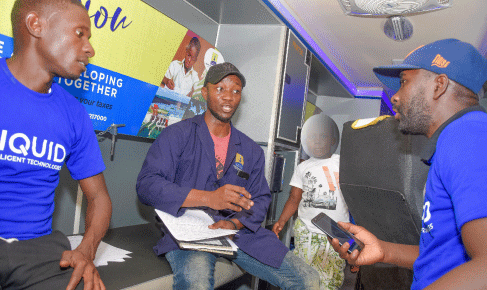Prime
Where’s the political will to get rid of corruption?

Erisa Odoi Yoga
What you need to know:
The corrupt judge themselves not by righteousness and honesty but by their ‘productivity’.
In 2016, I penned an article in the Daily Monitor titled ‘Corruption is not only about misappropriating public resources’, which came on the heels of yet again, another President Museveni’s flamboyant and seemingly authoritative deceleration of war on corruption dabbed ‘kisanja hakuna mchezo’ (term of no jokes).
That ‘revolutionary’ declaration was, however, erroneously relegated in the blink of an eye when in the heat of Speaker elections a section of parliamentarians’ accounts were allegedly stuffed with a Shs5 million bounty.
This naked act of corruption was blatantly defended by the fountain of honour as rescue fund and not a bribe, and it decisively condemned the declaration to its fate. One couldn’t be gravely mistaken to interpret the prior three decades of NRM rule as all ‘muchezo’ with regard to corruption in government business.
At a glance, the rot and plain corruption that characterised privatisation of government parastatals, handling GAVI and Chogm funds and fictitious budgets tells it all in black and white. The mischief that became the hallmark of the privatisation exercise can only be realistically equated to the European scramble for Africa to partition and loot it of its resources.
The only difference is that this one is being orchestrated by the very Ugandans who deviously brand themselves as nationalists and patriots. Recently some highly placed government officials were voicing their frustrations at the paltry performance of kisanja hakuna mchezo. The corrupt in government still had their field - day, it was business as usual for them.
Our words have to match our actions if we are to be projected in the eyes of the people we lead, as blacksmiths of daggers designed and devoted for meaningful battle against such seductive and lucrative vices as corruption. Political corruption is the mother of all forms of corruption, for it is the cradle bed, the springboard, sets the tempo and oversees all other forms of corruption.
It is not feasible to fight the other forms of corruption in a sea of political corruption because they feed into each other, making it untenable to selectively fighting corruption.
My characterisation of corruption, which paints its broad spectrum as ‘any action that is done with an aim of soliciting unfair treatment, gain or advantage; or that which has the potential of soliciting such treatment or advantage over others with or without intention, especially in a contested setting; or indeed any action that has the potential of unfairly influencing the conventional outcomes of any social phenomenon or event’.
For as long as such mindset prevails in a society or in its rulers, the corrupt specters in society only get fueled. It will take more than good intention and rhetorics or posturing to defeat corruption in Uganda.
Corrupt mindsets stem from our malignant craving for domination over others, and wanton wild greed for and control over resources. Human nature is plainly selfish.
An ordered society’s role is supposed to tame and trim us to think, feel and act as segments of the same and one unit, culminating in cultivation and existence of brotherhood. Unfortunately, our deep rooted inborn weakness of selfishness, greed and pride which breed the powerful urge for dominance, hold many of us from outgrowing this childhood syndrome and we carry on the same show, perhaps inadvertently to adulthood and into politics.
This scenario ends up constructing our skewed mindsets that determine our attitudes and governs our behavior in society.
Our society seems to adore the corrupt. This makes the corrupt judge themselves not by righteousness and honesty but by their ‘productivity’ irrespective of the means of production.
Civilization therefore cannot succeed in pruning us of selfishness and greed, the valued ‘factors of productivity’, which have become the mirror by which we evaluate ourselves. We put high premiums on how we look at ourselves than on how honest we should be. This realism renders us powerless to turn on the white light of reason and conscious awareness.
Consequently, our words as politicians are never the genuine picture of our hearts and hence our politics is always without principle.
Credibility in life can only be built over time from the history of our words and actions. In matching what we profess with what we practise, we project and cast our true image in the eye of society.




